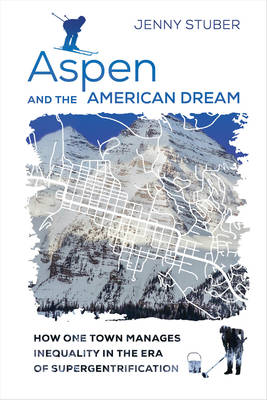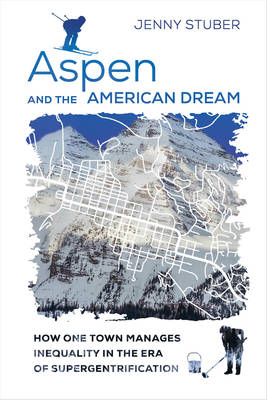
- Afhalen na 1 uur in een winkel met voorraad
- Gratis thuislevering in België vanaf € 30
- Ruim aanbod met 7 miljoen producten
- Afhalen na 1 uur in een winkel met voorraad
- Gratis thuislevering in België vanaf € 30
- Ruim aanbod met 7 miljoen producten
Aspen and the American Dream
How One Town Manages Inequality in the Era of Supergentrification
Jenny StuberOmschrijving
How is it possible for a town to exist where the median household income is about $73,000, but the median home price is about $4,000,000? Boring into the "impossible" math of Aspen, Colorado, Stuber explores how middle-class people have found a way to live in this supergentrified town. Interviewing a range of residents, policymakers, and officials, Stuber shows that what resolves the math equation between incomes and home values in Aspen, Colorado--the X-factor that makes middle-class life possible--is the careful orchestration of diverse class interests within local politics and the community. She explores how this is achieved through a highly regulatory and extractive land use code that provides symbolic and material value to highly affluent investors and part-year residents, as well as less-affluent locals, many of whom benefit from an array of subsidies--including an extensive affordable housing program--that redistribute economic resources in ways that make it possible for middle-class residents to live there.
Stuber further examines how Latinos, who provide much of the service work in Aspen and who tend to live outside the town, fit into the social geography of one of the most unequal places in the country. Overall, Stuber argues that the Aspen's ability to balance the interests of its diverse class constituencies is not a foregone conclusion; rather, it is the result of efforts by local stakeholders--citizens, government, developers, and vacationers--to preserve the town's unique feel and value, and "keep Aspen, Aspen" in all its complex dynamics.
Specificaties
Betrokkenen
- Auteur(s):
- Uitgeverij:
Inhoud
- Aantal bladzijden:
- 304
- Taal:
- Engels
Eigenschappen
- Productcode (EAN):
- 9780520306608
- Verschijningsdatum:
- 23/03/2021
- Uitvoering:
- Paperback
- Formaat:
- Trade paperback (VS)
- Afmetingen:
- 150 mm x 226 mm
- Gewicht:
- 408 g

Alleen bij Standaard Boekhandel
Beoordelingen
We publiceren alleen reviews die voldoen aan de voorwaarden voor reviews. Bekijk onze voorwaarden voor reviews.











